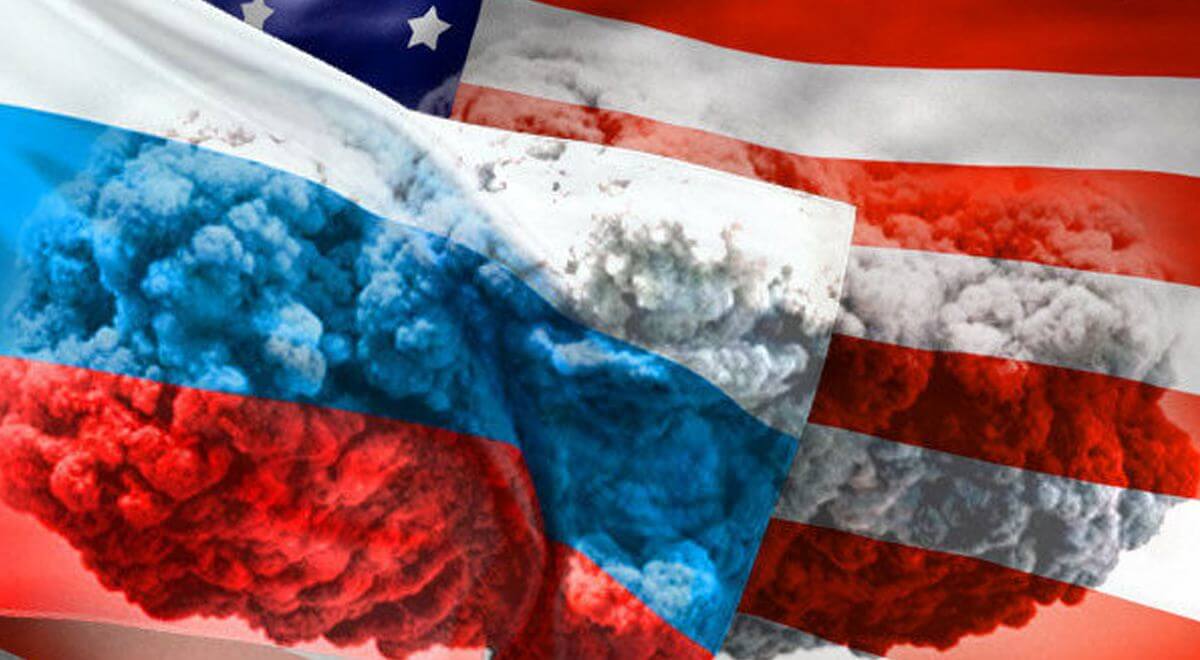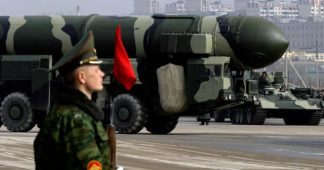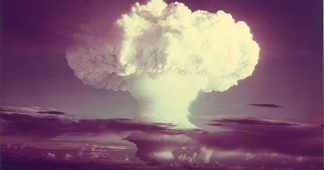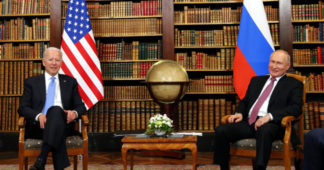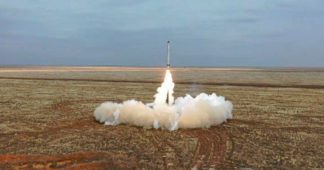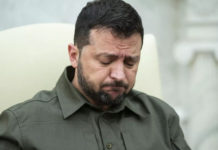By David Holloway
March 10, 2022
The risk of nuclear war casts a dark shadow over the already-tragic events in Ukraine. On February 19, Vladimir Putin launched an exercise involving Russian strategic forces. On February 24—the day Putin invaded Ukraine—he warned that Russia would respond immediately to those who stood in its way, with consequences that “will be such as you have never seen in your entire history.” On February 27, he publicly ordered his minister of defense and chief of the general staff to transfer Russia’s “deterrence forces” to “special combat readiness.” Putin’s aim was evidently to deter outside intervention and to signal Russia’s determination to achieve its goals.
But another, more troubling, aspect to Putin’s recent comments has received little or no attention. It has to do with the circumstances under which Russia might use nuclear weapons.
In June 2020, Putin signed a decree—the Basic Principles of the Russian Federation’s State Policy in the Domain of Nuclear Deterrence—that specifies two conditions under which Russia would use nuclear weapons. The first is unsurprising: “The Russian Federation retains the right to use nuclear weapons in response to the use of nuclear weapons and other types of weapons of mass destruction against it and/or its allies…” But that sentence ends with an unusual statement: “… and also in the case of aggression against the Russian Federation with the use of conventional weapons, when the very existence of the state is put under threat” [emphasis added].
In his February 24 speech, Putin echoed that unusual language to describe his Ukraine invasion. The United States, he claimed, was creating a hostile “anti-Russia” next to Russia and in Russia’s historic land. “For the United States and its allies, it is a policy of containing Russia, with obvious geopolitical dividends,” he said. “For our country, it is a matter of life and death, a matter of our historical future as a nation. This is not an exaggeration; this is a fact. It is not only a very real threat to our interests but to the very existence of our state and to its sovereignty” [emphasis added]. Putin has defined the current situation as one in which, in line with the principles of its deterrence policy, Russia retains the right to use nuclear weapons.
This does not mean that Russia will use such weapons, and deterrence at the strategic level appears to be robust. At the tactical level, however, the situation is different. The 2018 US Nuclear Posture Review ascribed to Russia the view that “the threat of nuclear escalation or even first use of nuclear weapons would serve to de-escalate a conflict on terms favorable to Russia.” Russian military theorists have certainly discussed this idea of “escalating to de-escalate,” though whether it is a part of Russian doctrine is disputed among students of Russian strategy. “Escalating to de-escalate” in a war with NATO would run the serious risk of escalation rather than de-escalation. In a local war with a non-nuclear adversary, however, the small-scale tactical use of nuclear weapons might be a serious temptation, especially if the war were not going according to plan. In short, the impulse to escalate in a tight corner could be strong.
There are two reasons for drawing attention to Putin’s recent words. First, in echoing the Basic Principles of Russian Federation’s State Policy in the Domain of Deterrence, Putin provides a frame of reference for his thinking about nuclear weapon use. This, in turn, provides context for assessing the risk that he will escalate to the use of nuclear weapons.
Second, in a period of high tension, a miscalculation could have catastrophic consequences, as Russia’s recent decisions arguably show. World leaders should do as much as possible to dissuade Putin from using of nuclear weapons, not so much by the threat of retaliation in kind, since that could lead to dangerous escalation. Rather they should prepare the ground for a massive political response to a potential decision Putin might make to cross the nuclear threshold.
Published at thebulletin.org
We remind our readers that publication of articles on our site does not mean that we agree with what is written. Our policy is to publish anything which we consider of interest, so as to assist our readers in forming their opinions. Sometimes we even publish articles with which we totally disagree, since we believe it is important for our readers to be informed on as wide a spectrum of views as possible.
